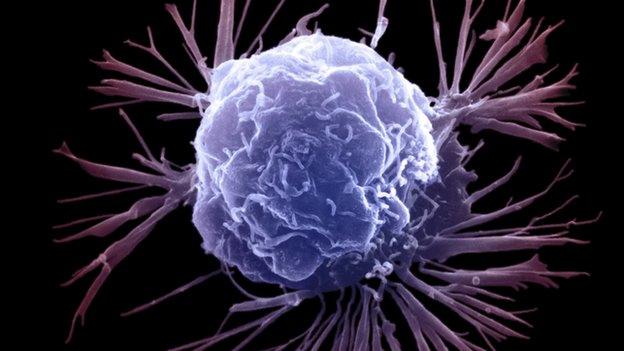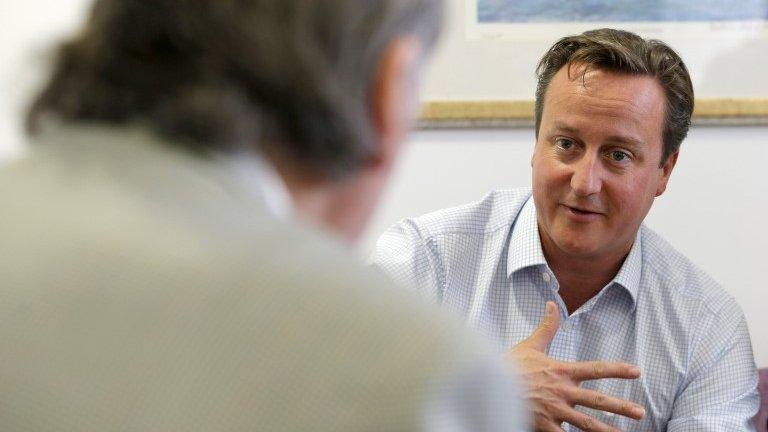Cancer Drugs Fund to be restricted - says NHS
- Published

Some life-saving cancer medicines are likely to be removed from the list of expensive drugs paid for out of a special fund set up by the prime minster.
The Cancer Drugs Fund was designed to give patients in England access to effective treatments deemed too expensive for hospitals to fund.
But now the fund will introduce price restrictions for the first time and 42 drugs are being reassessed, external.
Cancer charities have expressed "deep concern" at the move.
Drugs have to be cost effective for the NHS to make them routinely available.
Those deemed too expensive include the breast cancer therapy Kadcyla, which extends life by an average of six months and costs £90,000 a course.
Prime Minister David Cameron set up a separate pot of money in 2010 to give patients access to these expensive drugs, irrespective of cost.
The £200m-a-year Cancer Drugs Fund has been used by about 55,000 people.
Too expensive
It has faced money problems and was overspent by £30m last year.
Its budget is being expanded to £280m and further changes are being introduced to make it sustainable.
Earlier this year the chairman of the Cancer Drugs Fund, Prof Peter Clark wrote, external: "While the Cancer Drugs Fund currently funds drugs of good benefit to patients, it also includes a minority drugs with much less clinical value.
"These offer at best a modest or no impact on survival, and uncertainty as to whether quality of life is improved or not."
During a consultation on the future of the fund, he added: "Drugs which are excessively priced would be potentially removed from the Cancer Drugs Fund unless the pharmaceutical company makes an appropriate adjustment."
Restrictions
NHS England has now introduced financial restrictions, external on the drugs that will be paid for through the fund.
It said: "The changes to the Cancer Drugs Fund process include re-evaluation of a number of drugs on the list... which will include, for the first time, an assessment of a drug's cost alongside its clinical benefits."
Forty-two of the drugs currently funded, around half the total, will be assessed in December.
However, no patient will be taken off their current medication as part of the shift in policy.
Caitlin Palframan, the senior policy manager at Breakthrough Breast Cancer, said: "We're deeply concerned that several very effective breast cancer drugs appear on the list of drugs at risk of delisting due to their high price.
"The fund is the only way women in England can routinely access these drugs that can offer them months, or even years, of additional good quality life."
Owen Sharp, the chief executive of Prostate Cancer UK, said the fund had created "perverse incentives" that meant drug companies did not need to make their medicines affordable as the fund would pay for them anyway.
He called for the NHS and government to work more closely with pharmaceutical companies to bring down the cost of new drugs.
He said: "Whilst we welcome the clarity provided by these proposed reforms, the huge deficit that has brought the Cancer Drugs Fund to the brink is the result of a failed drug appraisal system that continues to deny thousands of cancer patients access to effective drugs that they clearly need.
"A long-term solution is urgently needed that delivers an overhaul of the way new cancer drugs are appraised."
- Published27 August 2014
- Published29 October 2014

- Published28 September 2013
